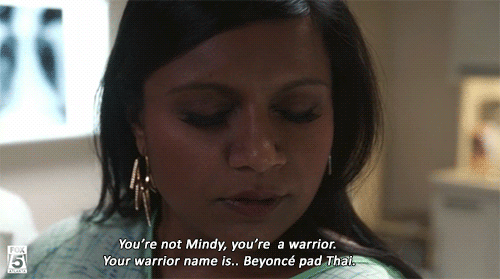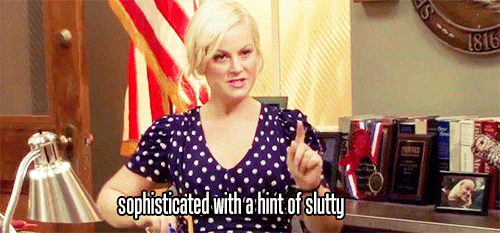What I've learned during my first year as a full-time software developer
My programming origin story starts when I was just a wee lass, poking around on the whirring, clunky, guttural box that 1996 called a computer (2 gigs of data!).
I was never encouraged to pursue programming as a job, however - in my mother's words, my parents viewed it merely as a "fun little diversion," not knowing how the internet would explode over the next two decades. So while I used some of those childhood skills throughout my career as a journalist, it was only about a year ago that I started working full-time as a programmer.
I've learned far too much since then to include in a single list, but these are a few of my big takeaways.
1. Programmers are not the most important people in tech.

A year ago, the word "tech" conjured for me an image consisting entirely of other programmers, probably working in decked-out offices with great snacks and foosball (turns out the last part has been more or less accurate). I mean, I'd heard of QA; I sort of knew what a project manager or business dev's job entailed. But from the outside, any non-coding role at a tech company seemed decidedly secondary.
My initial perception had less to do with my ego, and was more a byproduct of the way our culture at-large reveres programmers. The longer I've been full-time in tech, however, the more I've come to respect and appreciate the vital work of the non-programmers.
Related:
Just because someone doesn't write code for a living doesn't mean they don't understand how it works. I don’t know how to put together an engine, but I can still follow along when my mechanic tells me what she has to fix and how she’ll do it.
That being said ...
2. ... the average person has little idea what I actually do for a living.

This is a problem, because when something is shrouded or obscured, people are discouraged from pursuing it.
And to be fair, programming isn't for everyone - I've seen plenty of people pushed into coding because there's an abundance of well-paying jobs in the field, only to fail because they or their teachers ignored the warning signs indicating it wasn't a good fit. It takes certain skills and attitudes to be a successful programmer, just like it does to be a successful firefighter, pastry chef, nanny, etc.
But plenty of people who have never considered programming would be great at it, if only they knew what it actually entailed: problem-solving, logical thinking, humility, creativity and patience (lots of patience).
I volunteer with multiple organizations that introduce people to programming, and find myself refuting the same misconceptions over and over:
- No, you don't need to be a whiz at math.
- Yes, it's really fun.
- No, it's not just sitting at a computer in a windowless basement all day.
- Yes, there's lots of opportunity to be creative.
As a result, I've learned to stop telling people my job title and start telling them what I actually do: use language and logic to find creative solutions for real-world problems.
3. I will probably never know as much as I know that I don't know.

And that's OK.
Some days, my job is still really challenging, and my brain hurts, and I feel like I don't know anything at all, and that's also OK - as long as, when that happens, I take my boss's advice and let myself reset.
Coding is hard. There's a reason we're not all programmers. The key, for me, is to not let my frustrations overwhelm me. Often, just stepping away for a 10-minute break and returning with a fresh perspective is all it takes.
4. If you like wearing dresses to work, wear them - even if all your coworkers are in T-shirts.

Only around 20 percent of programmers in the U.S. are women; this is the case at Ten Forward, as well, where I'm the only woman developer (out of six total). As a former public radio journalist and music journalist, I'm all too familiar with the experience of being one of the only women (if not the only one) at a company meeting or industry event, and I knew to expect that when I moved into tech.
I don't think I was prepared for how often I would be reminded that I was the only woman, however. It's great that the tech industry acknowledges the giant, pissed-off elephant in the room, but that also means that I'm hyperaware of my otherness.
My team didn't do anything specific to instigate this; to the contrary, they've been supportive and welcoming since the beginning. But for a number of reasons (hello, imposter syndrome!), I often still felt like an outsider, a phony - and after a while, I found myself subconsciously trying to dress the part. I guess part of me rationalized that if I "looked like" a programmer, I'd feel more like one.
No joke, I woke up one day to realize I'd worn a T-shirt almost two weeks in a row (and I only own, like, eight).
It was an epiphany. I stopped trying to adjust my style to fit tech - clothing and otherwise - and decided if tech wanted me, they could adjust instead ... and not just to make room for me, but to make room for everyone who isn't the stereotypical straight, able-bodied white male programmer.
To paraphrase Zooey Deschanel: “I want to be a fucking programmer and wear a fucking Peter Pan collar.”
So now I do :)